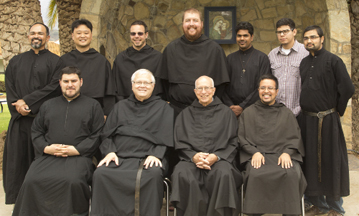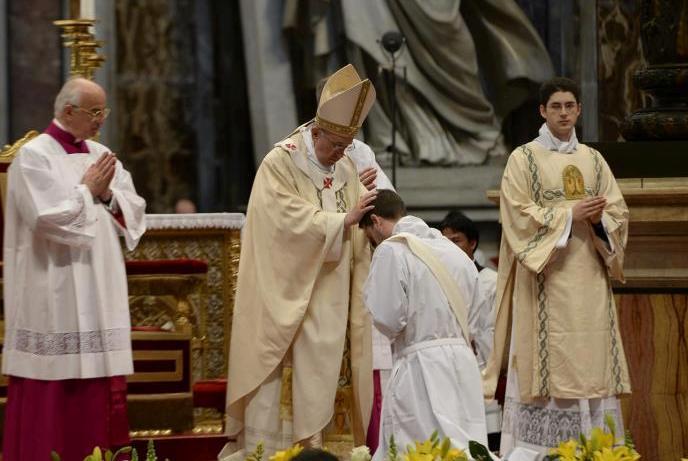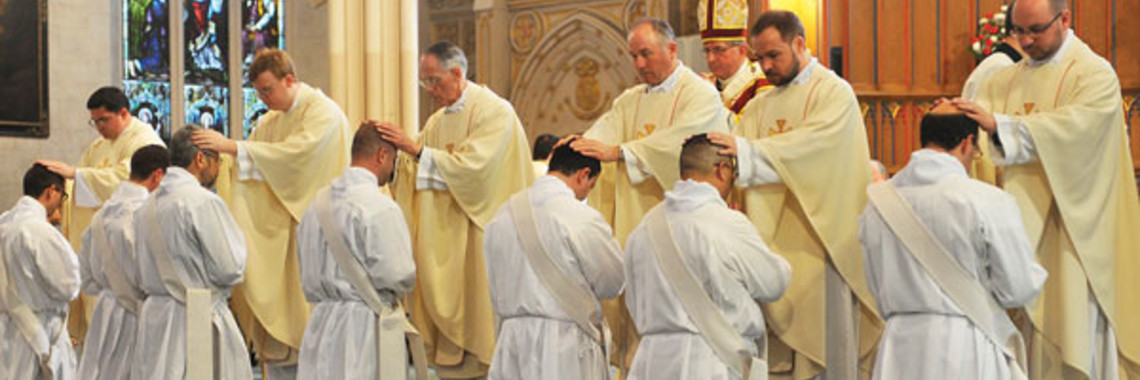Holy Orders
If you would like to speak to someone about a priestly or religious vocation, including becoming a deacon, please call the Office for Vocations at the Archdiocese of LA at 213.637.7515 or go to www.LAVocations.org. Click HERE or more information on becoming a deacon.
To explore vocations in the Augustinian Order please visit OSA Vocations.

As Catholics, by virtue of our baptism, we are called to a vocation to serve and proclaim the Good News of Jesus Christ in our lives. Some are called to single life, others to marriage, and still others to priesthood and religious life. Ultimately, this vocation is as unique as the person who is gifted with it.
All Christians share in Christ's priesthood. All Catholics, indeed all Christians, share in the priesthood of Christ through their baptism into his death and resurrection.
In the New Covenant we have two kinds of priests. Those who have received the sacrament of Holy Orders and those who belong to the priesthood of the faithful (also called laity).
Holy Orders
Jesus gave a profound gift to the eleven disciples who, except for John, had all betrayed Jesus at his passion.
Jesus…breathed on then and said to them,
'Receive the Holy Spirit. Whose sins you forgive are forgiven them, and whose sins you retain are retained.’ (John 20:22-23)
At the Last Supper Jesus had given these men the office of the priesthood also called Holy Orders. “The ministerial priest, by the sacred power he enjoys, teaches and rules the priestly people; acting in the person of Christ, he makes present the Eucharistic sacrifice, and offers it to God in the name of all the people” (Vatican II, Dogmatic Constitution on the Church, 10). Priests offer their entire lives in service and speak the words of absolution to forgive sins in the sacrament of confession.
Three Degrees of Holy Orders
Holy Orders describes the sacrament which has three degrees: bishop, priest, and deacon. The fullness of Holy Orders rests in the office of bishop. Consecration as a bishop makes him a real and legitimate successor of the apostles. Priests are ordained to serve the entire Church and like the bishop exercise this ministry through the forgiveness of sins. Deacons are ordained either transitionally (as part of the path to priestly ordination) or permanently to serve at the altar and exercise the ministry of the word (preaching and teaching). They also take on specific efforts of charity, service to the sick, and pastoral care. Deacons are not ordained to forgive sins (except in the administration of Baptism) and so they cannot confect the Eucharist, hear confessions, or anoint the sick.





